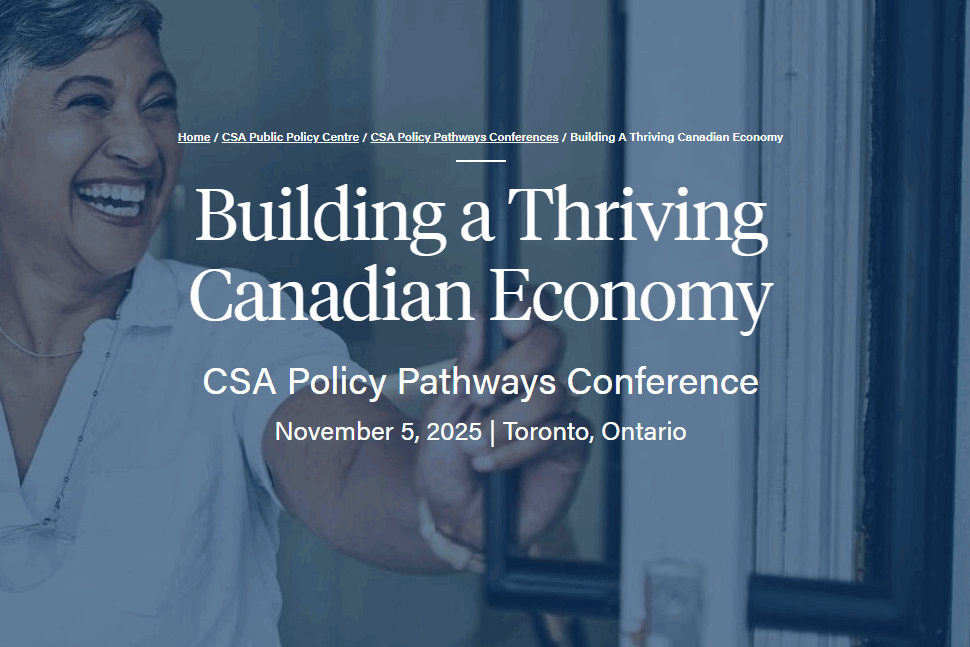This post first appeared in Future of Good.
Two new federal bills have received royal assent, making it easier for business owners to create Employee Ownership Trusts and share their wealth with employees.
New incentives will encourage business owners looking to sell to consider an Employee Ownership Trust so employees can have a stake in business ownership.
Selling the company to a trust means employees do not pay out-of-pocket. The loan is paid off from company profits, and employees begin to receive dividends.
Nearly three-quarters of small business owners plan to retire in the next decade.
Advocates have long argued that EOTs have numerous benefits. They allow companies to grow and stay in local communities, contribute to employee retention, and create financial wealth for employees and their families.
Bills C-59 and C-69, which will allow this to happen, received royal assent on June 20.
Bill C-59, a competition bill, means Canadian business owners will qualify for up to $10 million in tax-free capital gains if they sell 51% or more of their company to workers through an EOT.
Bill C-69 is a financial fairness bill which aims to encourage more business owners to sell to an EOT.

“It’s a different wealth-building model, but it lifts everybody and creates good economic opportunities,” Arnold Strub, executive director of Employee Ownership Canada, said earlier this year. “When employees have skin in the game and an ownership mindset, good things start to happen.”
The Government of Canada first read Bill C-59 in the House of Commons, including proposals on Employee Ownership Trusts (EOT), on Nov. 30.
Highlights include extending the capital gains reserve from five to 10 years, a $10-million capital gains exemption, and the ability to use the loan as a tax deduction, all designed to make turning a business into an EOT easier, said Strub.
Broadly, employee ownership meets two crucial goals, said Strub. First, it’s a democratic way for working-class Canadians to acquire wealth.
Such models are also a retention tool, as employees generally have better compensation and develop an ownership mindset.
“There’s a lot of research from the UK and the U.S. that shows that private companies with some type of employee ownership plan do better,” said Strub.
One employee ownership success story can be found in the Canadian prairie town of Altona, Man. where Friesens Corporation has 600 employee-owners in a town of 4,300 people. Established in 1907, the company evolved into four divisions offering trade books, academic annuals, packaging and self-publishing assistance.
In the 1950s, the owners began investigating new ownership models once they knew no next generation would take over. Influenced by the co-operative movement, they started gifting shares to employees who, for a time, could exchange them on a private market. About 30 per cent of the staff owned all of the shares.
That worked until the early aughts when Friesens created an EOT since more people were retiring than purchasing shares.
Now, every employee is an owner, and every employee is a beneficiary.
“Over the last 12 months, we’ve distributed in the neighbourhood of $5.5 million in proceeds to our employee-owners,” CEO Chad Friesen said in January.
“On average, our employee-owners received over $10,000 of what we would call an EOT distribution.
“We feel that our model is the great equalizer in business. It doesn’t matter whether you’ve come from an affluent family down the road or you’re a newcomer who’s arrived here from the Philippines. You both have an equal opportunity within this company to take advantage of ownership benefits.”
The Canadian Employee Ownership Coalition came together 18 months ago to advocate for better incentives to boost employee ownership in Canada.
Share with a friend
Related reading
Creativity could be collateral damage of U.S. film tariff
When U.S. tariffs threaten to strike creativity and culture, we can't afford to stay quiet. SCP Fellow and POV executive director Biju Pappachan explores the implications of the U.S. imposing a tariff on foreign-made films and explains why this is the moment for Canada to stand up for its filmmakers, crews and cultural sovereignty. Film and television are not luxuries; cultural production is a strategic sector that delivers exports, jobs and soft power. Just as we negotiate for agricultural or industrial tariff exemptions, cultural production deserves equal protection.
Hype or help? Can crypto and stablecoins solve economic inequality?
Some cryptocurrency advocates are promoting the use of stablecoins as a common currency, arguing that this new currency could help the cost-of-living crisis and promote economic equality – particularly for young people. Law professor, money expert and SCP Fellow Dan Rohde is not convinced that crypto can help address economic inequality. In this explainer, he breaks down what stablecoins are and aren’t, and how to think critically about their promises.
Building a thriving economy: CSA Policy Pathways Conference
The CSA Policy Pathways Conference convenes leaders, thinkers and changemakers across government, business, community and academia to confront the pressing questions shaping our economic future. How can we build resilience in the face of global uncertainty? What will it take to unlock innovation and ensure its benefits are broadly shared? How do we design policies that promote competition, inclusion, and financial security? Join us on November 5, 2025, in Toronto, as we explore how we can take bolder steps toward a more resilient, innovative and equitable economic future.


